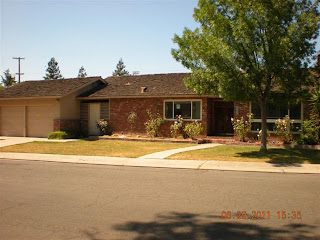I get asked this a lot- "who pays your commission?"
The short answer: The seller.
The long answer? Keep reading...
Most transactions in our market are either short sales (where the lender eats the commission) or REOs (where the bank pays the commission). BUT if you are in the unique position to be selling a home that has some equity YOU are the one who will be paying the commission to both the listing and selling agents.
Here are some common concerns when it comes to commission:
How is commission determined?
The commission is agreed upon when you (the seller) and your listing agent sign a listing agreement prior to the property going on the market. Also in the listing agreement is your authorization for the listing agent to advertise what the buyers agents commission will be.
If I am unhappy with the offer I received on my home can I renegotiate your commission?
Well.... yes and no. What is published in MLS as the "cooperating broker compensation" (technical term for what the buyer's agent gets) is binding even if it is an error- UNLESS you have a very understanding and cooperative buyer's agent on the other side of the deal who is willing to take something other than what is advertised.
What you have already agreed to pay your listing agent can be renegotiated after you receive offers on the property, but honestly it is really bad form. It is the same as agreeing to pay your mechanic for fixing your car then when you pick it up after he does the work you try to get him to cut you a deal. If your home is on the market a while and you are concerned about selling it for much less than what you had planned, the time to approach your agent with your concerns is before they bring you offers. Since commission is agreed upon between the listing firm and the seller, the buyer and their offer are not a party to it so the two should be treated separately. A good time to bring up a commission reduction may be when you discuss a price reduction, and the terms can be changed in a Modification of Terms Agreement. Most of us agents are very sensitive to your concerns and very cooperative and will work with you the best we can within the guidelines set forth for us by our broker, but with that said we do have to make a living.
Can I offer the buyer's agent an increased commission to entice showings?
Yes!! The typical commission split is 50/50, meaning 3% to each agent. That is not set in stone though, so if you want to be more competitive you can offer a 4/3 split or a 3/2.5 split- it is completely up to you and your agent and can be laid out in your listing agreement.
I still don't understand! What am I paying for? How much is it again?
You should never be afraid to ask questions- ESPECIALLY when you are about to sign on the dotted line! As a general rule I go over the listing agreement with my sellers in grave detail so I know I did my best in helping them understand. If your agent does not do this, please ask questions before you sign. A good agent will not have a problem with this and will answer your questions until you are fully satisfied. In addition, when you invite an agent over to your house to discuss listing it for sale, they should bring with them an estimated closing statement that will have real dollar amounts on it estimating your costs in selling your home. This will change as offers come in and taxes and interest are prorated, etc, but for every price reduction and every offer received your agent should be giving you one of these. This document WILL have the commission clearly itemized on it. Please look at it so you are not surprised at closing time!
For more information on this or any other commission/real estate related topics, please do not hesitate to contact me.




